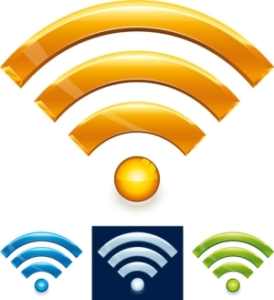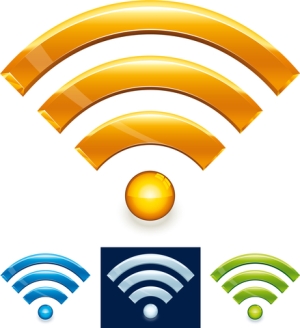How a Wi-Fi Hacker Snoops on Your Laptop and Mobile
You have likely heard of the dangers of using unsecure public Wi-Fi, so you know that hackers are out there snooping. It is pretty easy to hack into a laptop or mobile device that is on a public Wi-Fi connection with no protection. Hackers can read your emails, steal passwords, and even hijack your website log ins.
 Let’s imagine that you are in a local coffee shop with your laptop. All someone has to do is download a wireless network analyzer, which usually has a free trial, and with the right hardware and additional software they can often see what everyone is viewing online…unless they are protected. In some cases they can also read your emails that are going out and received, as well as texts you might be sending. Scary, right?
Let’s imagine that you are in a local coffee shop with your laptop. All someone has to do is download a wireless network analyzer, which usually has a free trial, and with the right hardware and additional software they can often see what everyone is viewing online…unless they are protected. In some cases they can also read your emails that are going out and received, as well as texts you might be sending. Scary, right?
Tips on How to Use a Wi-Fi Hotspot Safely
You now know what you are up against when you connect to a public Wi-Fi spot, but you should also know that you can use them with some safety in mind. Here are some tips:
- When you log onto a website, only use an encrypted connection. This means use the URL that begins with HTTPS, not HTTP. Keep an eye on that as you move from page to page because some sites will send you to an unsecured page, which makes you vulnerable.
- There are also many websites out there that will allow you to encrypt your browsing session automatically. Facebook, for instance, has this. To turn it on, go to your “Security” settings on the site, and then enable “Secure Browsing.”
- If you are going to check your email, login to your web browser and then ensure that your connection to your email client is encrypted. (Check by looking at HTTPS). If you are using Outlook, or another email client, make sure that your settings are set for encryption.
- Don’t use any service that is not encrypted when you are on a public Wi-Fi connection.
- Consider using a VPN when you are connecting to a public Wi-Fi connection. There is a small fee for this, but it’s well worth it.
- Beware of “evil twins” which are rogue networks designed to mimic legitimate networks. Example “ATT WiFi” my be “Free ATT WiFi”. Other than downloading special software that detects evil twins, the best case is to ask someone who’s knowledgeable as to which network is the safest.
- If you are on a private network, make sure you realize that they are also vulnerable. Anyone who knows how can spy on the network. Again, use WPA or WPA2 security so the connection is encrypted. However, if someone guesses or knows the password, they can still spy on any device that is connected
ROBERT SICILIANO CSP, is a #1 Best Selling Amazon author, CEO of CreditParent.com, the architect of the CSI Protection certification; a Cyber Social and Identity Protection security awareness training program.


 Never, ever enter your credit card or other sensitive information to claim a gift card that comes via email.
Never, ever enter your credit card or other sensitive information to claim a gift card that comes via email. If you don’t have a drone, don’t be surprised if you get one as a gift this season, as Americans are spending tens and tens of millions of dollars on them.
If you don’t have a drone, don’t be surprised if you get one as a gift this season, as Americans are spending tens and tens of millions of dollars on them.





























